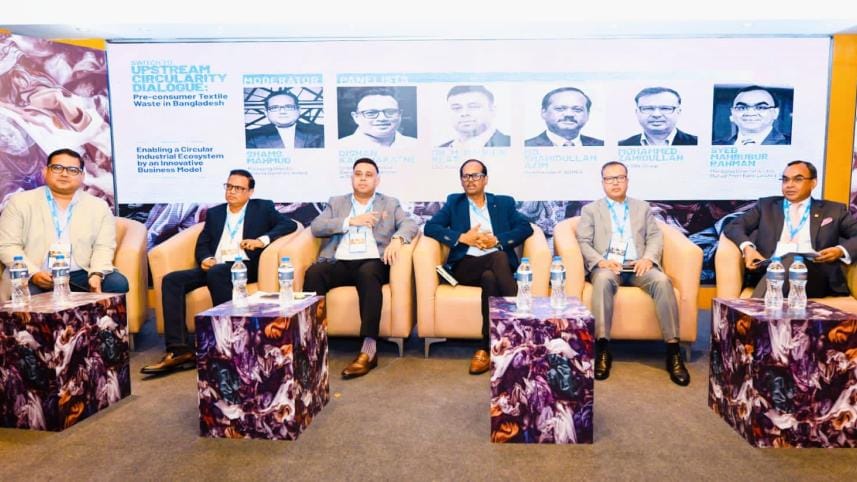‘Bangladesh can export $6 billion RMG made from recycled yarn’

Bangladesh can export $6 billion worth of garment items if it can locally process the 400,000 tonnes of recycled yarn and fabrics the local garment makers produce every year, experts said today.
They shared the data at a seminar on "Switch to upstream circularity dialogue: pre-consumer textile waste in Bangladesh" held at the Amari Hotel in Dhaka.
Garment exporters, researchers and senior government officials also attended the event organised under the Switch to Circular Economy Value Chains project (SWITCH2CE) in collaboration with Chatham House, Circle Economy and European Investment Bank.
At the event, the apparel manufacturers also want a ban on export of clothing wastages.
The exporters said they want to make garments from the wastes as the European nations—the major markets for Bangladesh—are making a law for importing apparels made from recycled yarn.
The recycled yarn and fabrics will create the next opportunity for Bangladesh as the international retailers and brands are preferring clothing items made from recycled yarn, said Faruque Hassan, president of Bangladesh Garment Manufacturers and Exporters Association (BGMEA).
Moreover, making of garment items from recycled yarn will also help Bangladesh in obtaining the GSP Plus facility in the European Union (EU) as those garment items would be made following their guidelines, he said.
M Masrur Reaz, chairman of Policy Exchange Bangladesh, stressed the need for taking a holistic vision, which provides direction, clarity and stance of the country in terms of circularity for utilising the new opportunity.
Vidiya Amrit Khan, director of the BGMEA, said the circularity is going to be new normal of the garment industry to address the issues about sustainability, traceability and climate change.
Saber Hossain Chowdhury, chair of the parliamentary standing committee on the ministry of environment, forest and climate change and special envoy to the prime minister for climate change; Bernd Spanier, deputy head of mission of the delegation of European Union to Bangladesh; Mark Draeck, chief technical adviser on SWITCH2CE at UNIDO, and Holly Syrett, director of impact programmes and sustainability at Global Fashion Agenda, also spoke.



 For all latest news, follow The Daily Star's Google News channel.
For all latest news, follow The Daily Star's Google News channel.
Comments